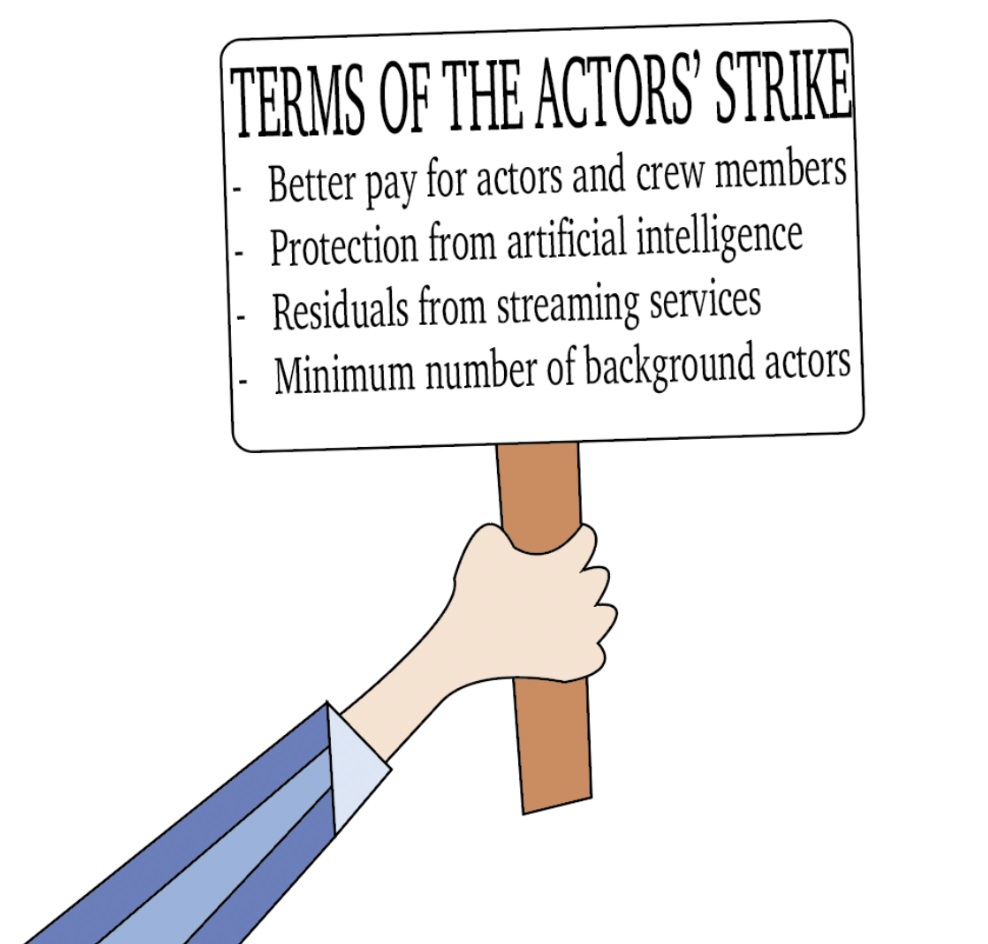The Screen Actors Guild-American Federation of Television and Radio Artists (SAG-AFTRA) voted to ratify their new contract with the Alliance of Motion Picture and TV Producers (AMPTP) on Dec. 5, officially putting an end to their four-month strike in a 78% approved vote.
According to the Associated Press, just under 40% of SAG actors participated in the vote, which lasted from Nov. 13 to Dec. 5. Had the voters decided to reject the deal, it could have meant that the strike would have started up again with Hollywood taking another pause on production.
As reported by CBS News, “[The deal] includes ‘above-pattern’ minimum compensation increases, unprecedented provisions for consent and compensation that will protect members from the threat of AI and for the first time establishes a streaming participation bonus.”
Before the deal, actors had been striking because they were being unfairly compensated in a world that now seems to value streaming over watching live TV. Additionally, workers sought an increase in minimum wage for actors, residuals for their work being streamed on platforms like Netflix and more contributions to the WGA health and payment plan.
“We’ve seen what happens if [the actors] don’t get the money they’re asking for,” Danielle Schwartz ’25 said. “It’s less about whether or not they deserve to be paid and more about the fact that there won’t be any new content if they don’t get the money.”
One major point of the strike was to prevent the usage of artificial intelligence in the film industry. The tentative deal states that companies that wish to replicate the voice or likeness of actors may do so only if the performer is compensated for the amount of time the performance would have taken them if done in person and only if the performer is aware of and consents to the usage of their likeness.
Theater teacher and Staples Players director, David Roth, thinks these new protocols will benefit actors going forward.
“I have a lot of friends that were involved in both strikes, and I am thrilled that they will be better compensated for their hard work,” Roth said. “I think that the studios tend to take advantage of the artist, and it was necessary for [artists to] strike in order to get fair treatment.”














































